This account of Yarbus’s early life is based on information given by his daughter, Francesca Yarbusova (see Yarbusova, 2015), at the symposium Yarbus-100 held at Nizhny Novgorod in 2014. It took place in the context of the annual conference for young scientists on Information Technologies and Systems and its aim was to celebrate the centenary of Yarbus’s birth.
“My father inherited his last name, Yarbus, and patronymic, Lukyanovich, from his stepfather Lukyan Ivanovich Yarbus. My father’s real name was Alfred Yanovich Kraćkowski and he was of Polish origin. His biological father was Yan Kraćkowski who worked with his brothers - Stas and Yuzef as forest engineers. My father’s mother Alfreda Vladislavovna (née Ejemskaya) was a pretty, shortish lady with plaited hair and she was an elementary school teacher. After their marriage, Yan and Alfreda lived in a suburb of Krakov. In the 1920s, Yan Kraćkowski joined revolutionaries and the Pilsudki government declared him an outlaw. The police tried to arrest Kraćkowski but he avoided them by hiding and sent his family only short messages. Eventually the police seized him and he was incarcerated in an old castle. On the very first night, Yan escaped out the prison window using a rope tied of rags. According to my father, Yan severely fractured his hand during his escape, his wounds reached deep down to the bone. Officials issued a proclamation that offered a large reward for Kraćkowski’s head. Near the Russian border Yan was recognized by two policemen who arrested him. On that cold winter night the police officers decided to sleep in a shelter. They stripped Yan down to his trousers and put shackles on his arms and legs so he could not flee again. Once the guards fell asleep, Yan got out of the shelter and walked barefoot through the snow to the Russian border and waded across a freezing river. That is how he found himself in Russia. For a while he lived in Minsk and worked as an editor on a local magazine.
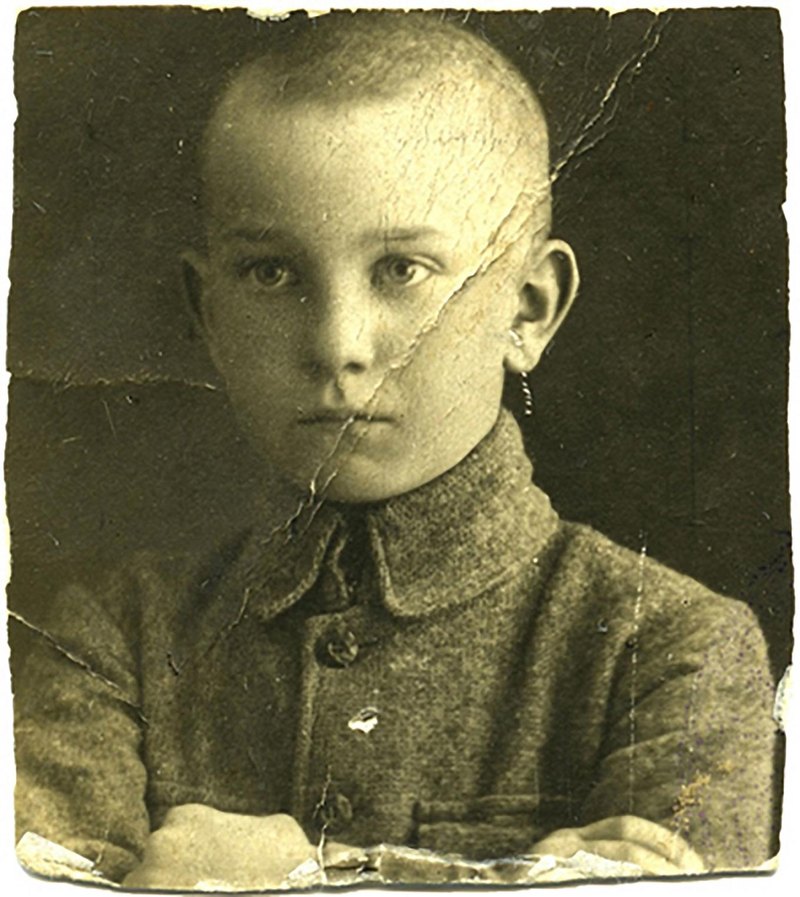
Alfred Yarbus (probably when living in Poland)
Around the 1926, Alfreda Vladislavovna took Alfred to Russia to find her husband. Father confided in detail to me the story of their departure. Early in the morning (it was the end of May) Alfreda harnessed the horse and loaded a bundle of clothes into the carriage. Nobody was supposed to know about their departure but as soon as she pulled on the reins and they were ready to begin their journey a dog jumped out at them. Alfreda ordered it to go back home and the obedient dog remained at the house to watch over a blossoming cherry tree, an old beehive, and a big empty house. My father looked back; those were his last memories of Poland. When they reached the border, Alfreda raced the horse and threw off the reins – she pretended that she had lost control of her horse. She anticipated that the border guard would find a scared lamenting lady with a little boy riding in the lumbering carriage but the horse broke the barrier and was eventually stopped in the Russian territory. Alfreda Vladislavovna and my father were isolated and interrogated for a long period of time before they could move on.
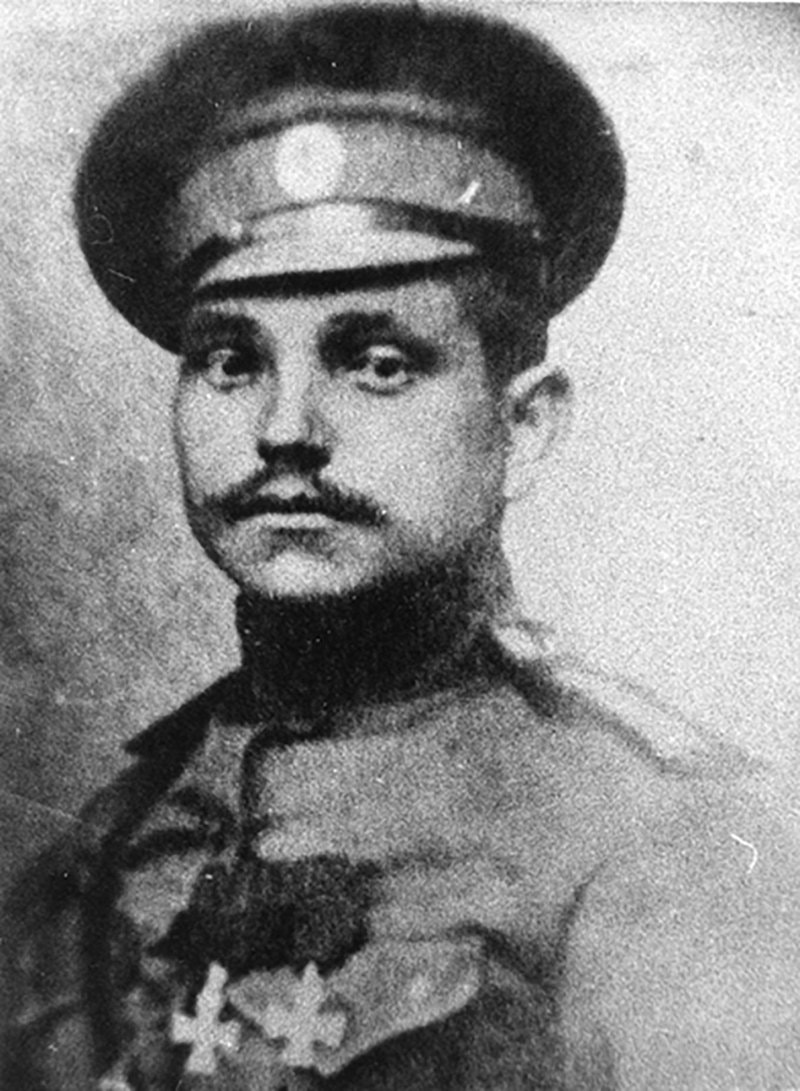
Lukyan Ivanovich Yarbus
The family should have been reunited, but Yan Kraćkowski had been arrested and exiled to Siberia. Kraćkowski had asked Yarbus to support his family. Alfreda Vladislavovna travelled with my father to Siberia to meet Yan. There was a hope that he would be released from detention. Unfortunately, he was relocated to another prison, presumably in Solovki where he disappeared without trace. Lukyan Ivanovich Yarbus adopted my father and married Alfreda Vladislavovna. They settled down in Kratovo (Kazanskaya railroad destination). My father began to go to school in Moscow. Everyday he took train to Moscow and studied lessons sitting on the steps of crowded railway coaches. Later, the Yarbus family moved closer to Moscow, to the station Veshnyaki, the settlement ‘Krasnyi Kazanets’ (it is the Moscow area now). In the 1936, Alfreda Vladislavovna died of cancer. At that time, my father was in his first year of studies at Moscow University. Later Lukyan Ivanovich remarried, but my father remained very close to him throughout his life. In summer we travelled together to the Volga River region, where Lykuan Ivanovich made a lot of acquaintances, everyone loved him because he was a charming and practical person. I am very grateful to him for all he did for our family and my father, Alfred Lukiyanovich Yarbus. However, I would like to request that all references to my father should note in parenthesis that his real name was Alfred Yanovich Kraćkowski.”
Francesca Yarbusova
Francesca Yarbusova was born on October 13, 1942, in Alma-Ata (now Astana), the capital of Kazakhstan, where Yarbus’s family stayed during the World War II evacuation.
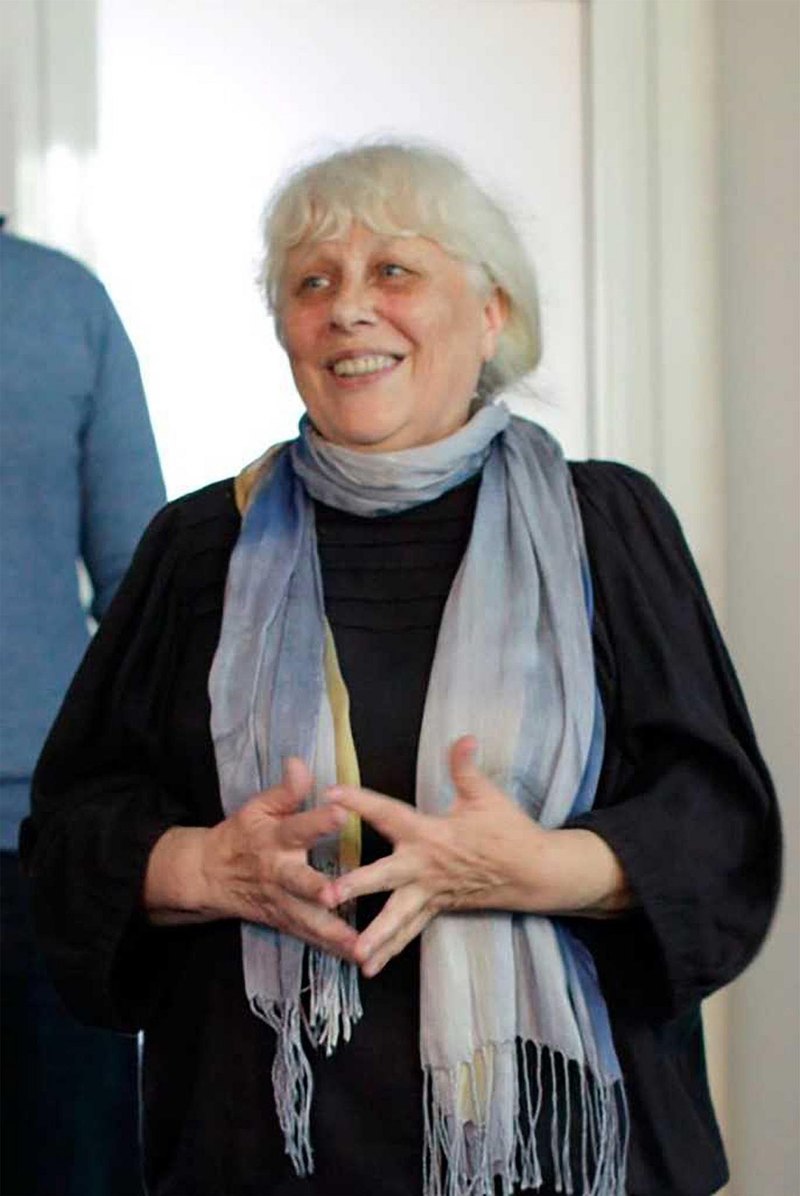
Francesca Yarbusova in 2014
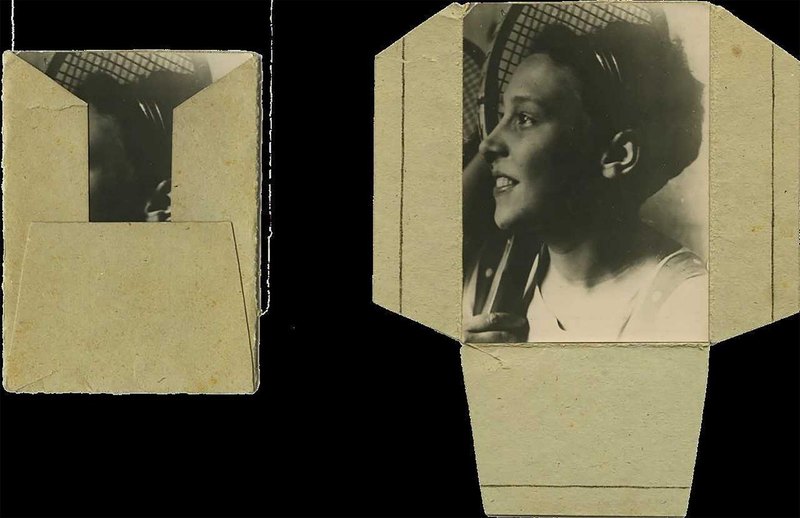
A portrait of Francesca’s mother Eugenia Yarbusova. This photo was kept by Alfred Yarbus among his documents during war time.
From a young age, Francesca had been interested in drawing. According to her mother, she began to sketch before she learnt how to walk. After the war, when all the family reunited in Moscow, Alfred Yarbus started to nurture his daughter’s gift, taking her on long forest walks and teaching her to observe nature.
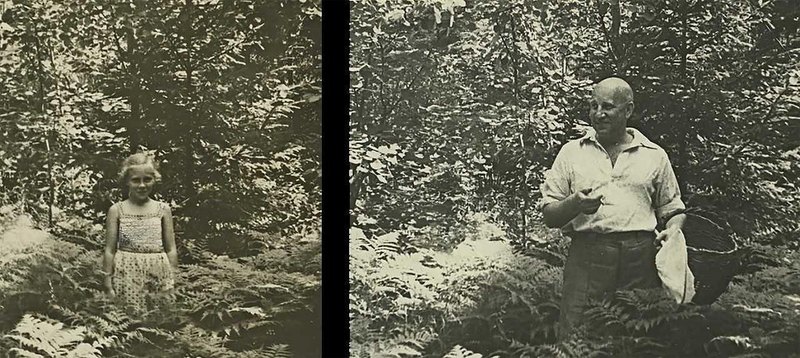
Francesca Yarbusova as a young girl in the woods with her father, Alfred.
Later, Francesca graduated from an art school in Moscow and received a degree in film animation from the All-Russian State Institute of Cinematography (S.A. Gerasimov Institute). Francesca is a talented cartoon artist and producer. Her husband Yuriy Norshteyn is an outstanding animator. They have produced many remarkable films that have won numerous local and international awards. In particular, their film Tale of Tales has been recognized as one of the greatest animated films of all times. Francesca was very close to her father. She was the frequent visitor to Yarbus’s laboratory, where she helped him to design miniature devices for his experiments with suction caps, i.e. she could be considered as his collaborator. When Francesca became an adult, Alfred Yarbus trusted her with the secretive story of his family’s drama that he and his parents went through in his early childhood. It was fortunate that Francesca could attend the symposium celebrating the centennial of Alfred Yarbus with his colleagues and followers.

Left, Francesca Yarbusova at Yarbus-100 exhibition; on her left (and to the right in the photograph) is A. P. Kuleshov (director of IITP in 2014), and on her right is Nina Polischuk — Yarbus’s colleague and favourite subject who readily agree to put suction caps on her eyes in Yarbus’s experiments. Right, Francesca Yarbusova together with Galina Rozhkova in 2014 at the exhibition.